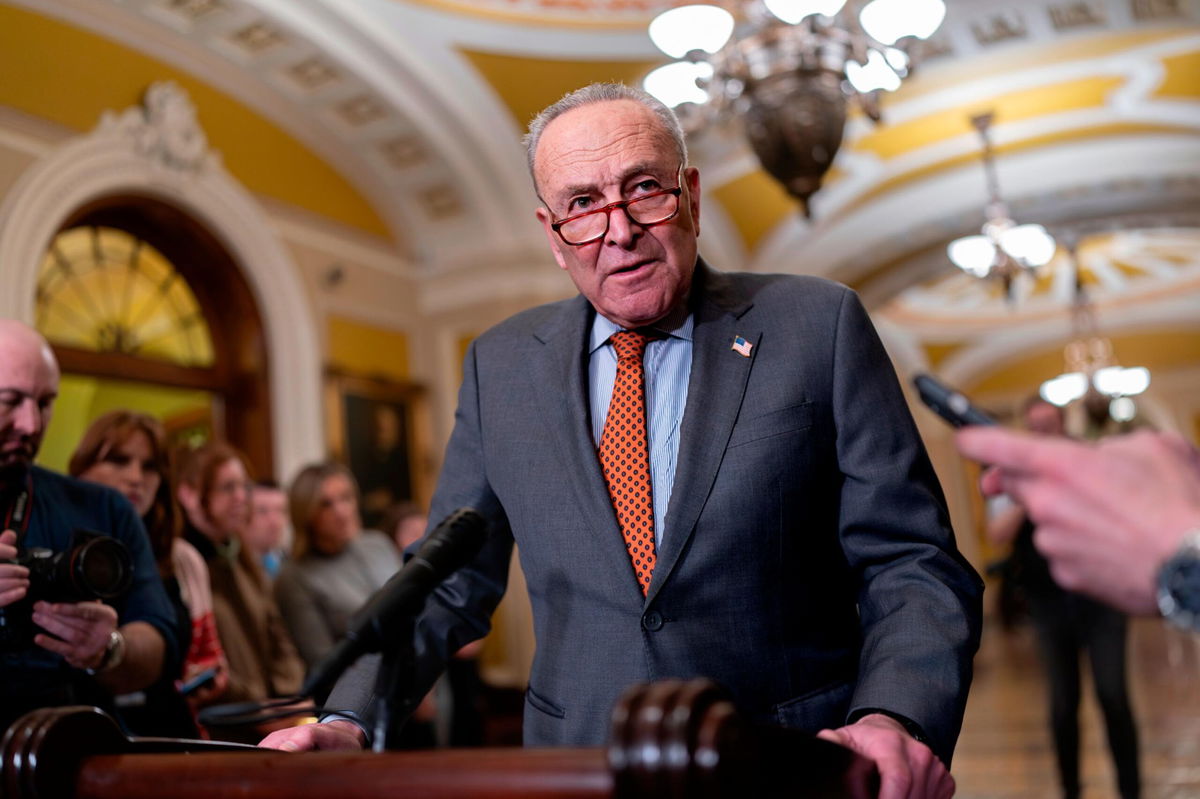Congress faces crisis at home and abroad as 2024 deepens partisan division

Originally Published: 02 JAN 24 07:00 ET Updated: 02 JAN 24 11:15 ET By Clare Foran and Haley Talbot, CNN
(CNN) -- The new year will bring new challenges for lawmakers, who must confront crises at home and abroad as the 2024 elections take center stage and threaten to deepen partisan divisions on Capitol Hill.
The race for the White House is poised to play a major role in influencing what gets done – and what doesn’t – on Capitol Hill, and the balance of power in Congress is at stake with key Senate and House races on the ballot.
The most pressing issues are a pair of government shutdown deadlines in January and February and a high-stakes effort to strike a deal over border security and aid for Ukraine and Israel. It’s far from clear, however, whether lawmakers will be able to reach consensus over border security and foreign aid and legislation to avert a shutdown.
As the 2024 election increasingly dominates the political landscape, consensus could become even more difficult as partisan disputes risk becoming harder to overcome on Capitol Hill.
Negotiations ongoing over border security
Senate negotiators have been seeking a deal on border security that could be tied to aid for Ukraine and Israel, among other priorities, as Republicans insist that an aid package be paired with major border security policy changes.
The House and Senate aren’t due to return for votes until next week, but border security talks have continued during the holiday break. Senators involved in the discussions have been in conversation since the chamber adjourned for the recess – and lawmakers and staff have been meeting remotely, according to a Senate aide familiar with the negotiations.
Threading the needle on a potential deal is highly challenging, in part because border security and immigration have long been among the most contentious policy issues on Capitol Hill.
Attempting to hammer out a deal as the presidential race picks up steam adds to the challenge, especially as hardline rhetoric over immigration and the border has long been a prominent feature of former President Donald Trump’s campaigns.
In December, Senate Majority Leader Chuck Schumer and Minority Leader Mitch McConnell said in a joint statement that negotiators were making “encouraging progress,” but that “challenging issues remain.”
“As negotiators work through remaining issues, it is our hope that their efforts will allow the Senate to take swift action on the national security supplemental early in the new year,” they said.
If Senate negotiators reach a deal that can pass the chamber, a border security and foreign aid package could still face an uphill battle in the GOP-controlled House, where a large number of Republicans are opposed to further aid to Ukraine.
Government funding fight looms
House Speaker Mike Johnson will face an extremely narrow vote margin and what may be his most challenging leadership test to date when lawmakers return to Washington and confront a government funding fight.
In a rare event, Congress will face not one but two government shutdown deadlines early in the new year – on January 19 and February 2.
Congress passed stopgap legislation in mid-November extending government funding until January 19 for priorities including military construction, veterans’ affairs, transportation, housing and the Energy Department. The rest of the government will be funded until February 2.
The goal was to give lawmakers more time to try to pass full-year spending bills, but there is now very little time ahead of the rapidly approaching deadlines.
Absent a broader agreement, Congress will face pressure to again pass a stopgap bill, but prominent lawmakers are already warning against the possibility of a stopgap, known as a continuing resolution, or CR, that would last a full year.
“A CR is simply unacceptable for a year. It’s devastating, particularly for defense, and we’ve got all of these wars going on, so we need to reach an agreement on the top line and get about getting an outcome as soon as possible,” McConnell said in December.
After Johnson was elected speaker, a number of conservatives signaled they would give him time to find his footing in the job after former Speaker Kevin McCarthy was ousted by a conservative revolt. Cracks have already begun to emerge, however, and it’s not clear how much more of a grace period the new speaker will get.
Johnson will also have to steer his narrow majority through the GOP impeachment inquiry into President Joe Biden, which will be under a microscope in the weeks to come. That majority shrank in 2024 as McCarthy departed Congress at the end of last year before the end of his term. McCarthy’s absence and the expulsion of former Rep. George Santos of New York leaves two vacancies in the US House to be filled by special election later this year, and that Republicans control just 220 seats to Democrats’ 213at the year’s start.
In December, House Republicans voted to formalize an impeachment inquiry into Biden as their investigation reaches a critical juncture and right-wing pressure grows.
In a 221-212 vote, all GOP members supported the resolution to formalize the inquiry. But the probe has struggled to uncover wrongdoing by the president, a factor that could create a political liability for moderate Republican members in competitive districts.
GOP leadership has made a point to indicate that formalizing the inquiry does not mean impeaching the president is inevitable, even as pressure within the party and the Republican base grows.
“We’re not going to prejudge the outcome of this because we can’t,” Johnson told reporters in December. “It’s not a political calculation. We’re following the law, and we are the rule-of-law team, and I’m going to hold to that.”
This story has been updated with additional developments.
CNN’s Morgan Rimmer, Kristin Wilson and Annie Grayer contributed to this report.
The-CNN-Wire
™ & © 2024 Cable News Network, Inc., a Warner Bros. Discovery Company. All rights reserved.



